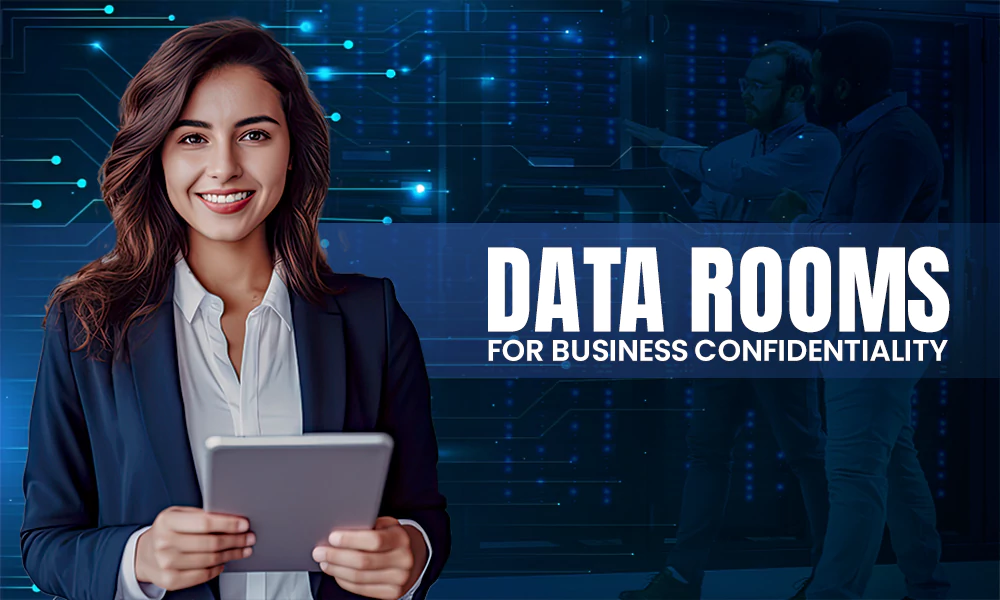

Data is the lifeblood of every business in today’s fragile and competitive digital ecosystem. From confidential client information to intellectual property and proprietary financial records, protecting sensitive data is paramount.
This is where data rooms, also known as virtual data rooms (VDRs), step in, offering a secure haven for managing vital business assets amidst the constant threat of cyberattacks and data breaches.
A solid virtual data room review will help a business choose which software to use even outside M&A deal rooms, and in this article, we will dive into how VDRs can help businesses across different sectors.
While VDRs are widely given an unofficial title ‘virtual data rooms for mergers and acquisitions’, their benefits extend far beyond. Businesses of all sizes can utilize a data room for a multitude of purposes, which we’ll explore below.
In business, customer data is a valuable asset, requiring top-level security and controlled access. Traditional file-sharing methods often fall short, exposing sensitive information to potential breaches and non-compliance risks.
Here’s how data rooms provide a secure haven for your customer data, safeguarding trust and reputation.
“Regulations come in waves, but your data shouldn’t drown. Choose a VDR that’s built to weather the storm of the business world, keeping your sensitive information safe and compliant, wave after wave”, according to Gilbert Waters – Co-founder and marketing specialist.
Datarooms protects customer data through encryption, access controls, and audit trails, ensuring compliance. Controlled sharing features prevent unauthorized access, while transparency and accountability are tracked through detailed audit trails.
Project success hinges on seamless collaboration and secure access to confidential information. Accessing scattered emails and unsecured file-sharing platforms can slow progress and compromise data security. Datarooms offers a new and more solid solution, promoting efficient teamwork and safeguarding sensitive project details.
Datarooms centralize project documents, enabling real-time collaboration across locations and devices. Access controls protect confidential information, while Q&A platforms and messaging channels streamline communication. Remote access and offline document viewing add further flexibility.
In an increasingly globalized world, physical boundaries shouldn’t reduce access to critical information. Datarooms bridges the gap, providing secure and flexible document access for employees and partners, regardless of their location.
Datarooms empower remote teams with 24/7 access to documents from any device, anywhere. Offline viewing capabilities enhance accessibility in areas with limited internet. Version control and audit trails ensure document integrity and accountability.
Additionally, datarooms reduce dependence on physical storage, saving space and minimizing document loss risks.
Onboarding new hires can be a tasking process, often involving mountains of paperwork and scattered file locations. Datarooms can transform this experience, ensuring efficient document delivery, controlled access, and a smoother transition for new team members.
Datarooms securely share essential onboarding documents like contracts, handbooks, and policies. New hires gain faster access to necessary resources and company information, leading to a more positive and productive onboarding experience.
Datarooms offers tools and features tailored to comply with regulations like HIPAA, GDPR, and PCI-DSS, protecting sensitive information and reducing compliance risks for businesses in various sectors.
Financial and legal compliance is facilitated through secure document handling, while tools like data encryption and consent management assist with GDPR and CCPA compliance. Industry-specific features like HIPAA regulations for the healthcare industry address unique compliance requirements for various business sectors, safeguarding businesses and ensuring peace of mind. These features affect virtual data room pricing, but again it varies across different data room providers.
As data becomes increasingly valuable, investing in robust data security measures is no longer optional. Datarooms offers a comprehensive and cost-effective solution for businesses of all sizes to protect their information, streamline workflows, and collaborate effectively in a secure digital environment.
Remember, protecting your confidential data is an ongoing process. By prioritizing data security and utilizing the power of data rooms, you can safeguard your business’s most valuable assets and prepare for a future driven by information and collaboration.
Remember, protecting your confidential data is an ongoing process. By prioritizing data security and utilizing the power of data rooms, you can safeguard your business’s most valuable assets and prepare for a future driven by information and collaboration.
Water is essential for life, and staying hydrated throughout the day is crucial for maintaining… Read More
Cybersecurity has grown to be a major worry for both individuals and corporations in the… Read More
Key Takeaways: Professional office cleaning services in Atlanta create a positive impression on clients and… Read More
Have you ever considered renting a property in Canada as an international tenant? Navigating the… Read More
GoMeet is a free video chat app similar to CooMeet that enables you to meet… Read More
In the ever-evolving world of digital marketing, on-page SEO remains a fundamental component for achieving… Read More